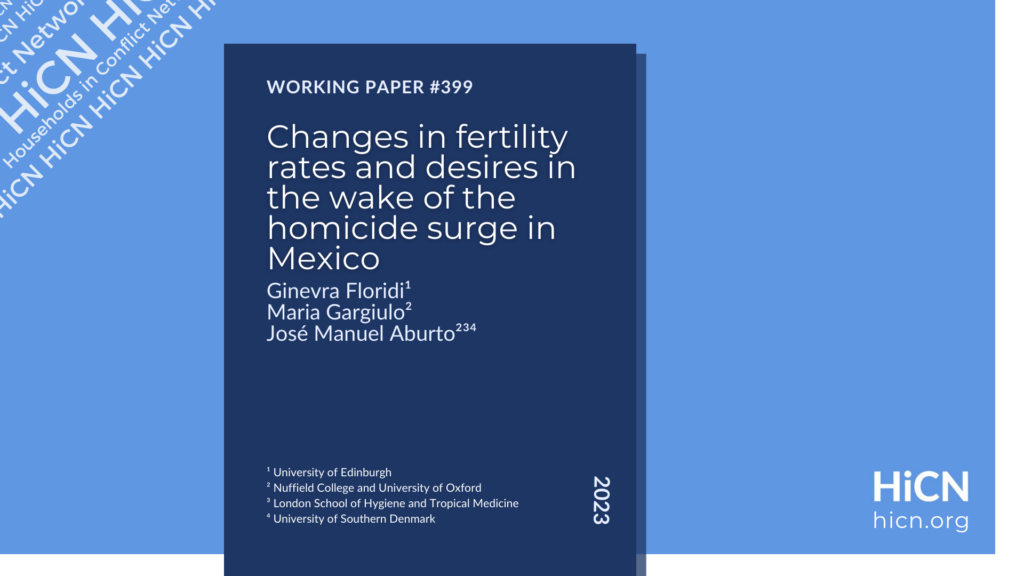
Since 2006, Mexico has experienced a surge in homicide violence due to national policies and international influences on drug trafficking activities. While the effects of the so-called “Drug War” have been extensively studied in demography and social science research, whether and how the increase in homicides has affected fertility is unknown. This study provides a comprehensive account of the relationship between homicides and changes in fertility rates and desires in Mexico. Using fixed-effects models and a staggered difference-in-differences estimator, we study the effect of homicidal violence on the total fertility rate (TFR) across all Mexican municipalities between 2000–2020. Then, using random-intercept and fixed-effects models, we analyse the association between changes in homicide rates and fertility desires for 6,341 women from the Mexican Family Life Survey (2002–2012). Our findings show no average effect of homicides on TFR for the whole period considered, although TFR declined slightly faster (by 0.1 children per woman) in municipalities experiencing very large homicide spikes between 2010 and 2015. We find no association between municipality-level homicide rates and fertility desires, consistent across educational levels and by parity. Our results show remarkable continuity in the Mexican fertility decline despite the rapid escalation of violence.